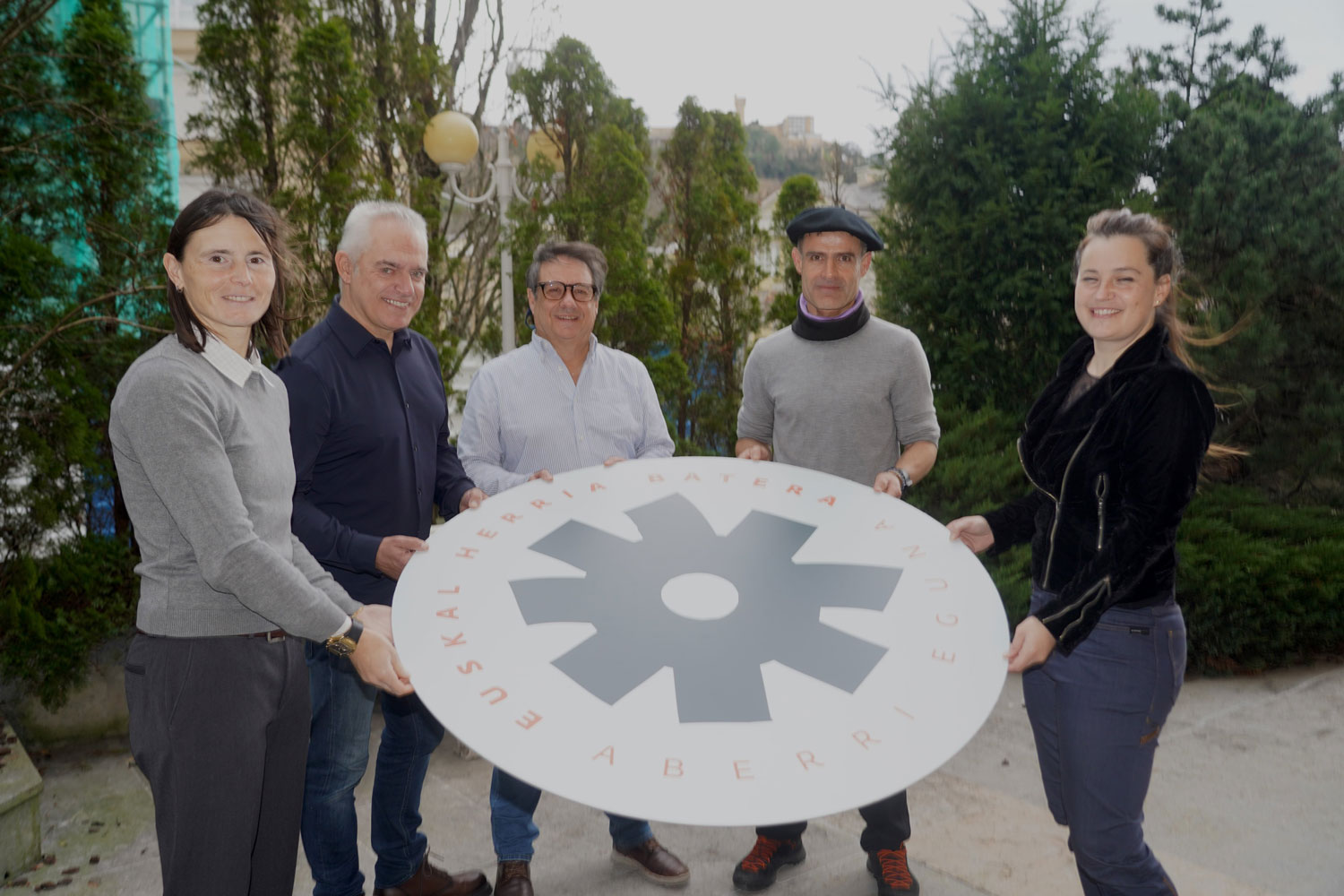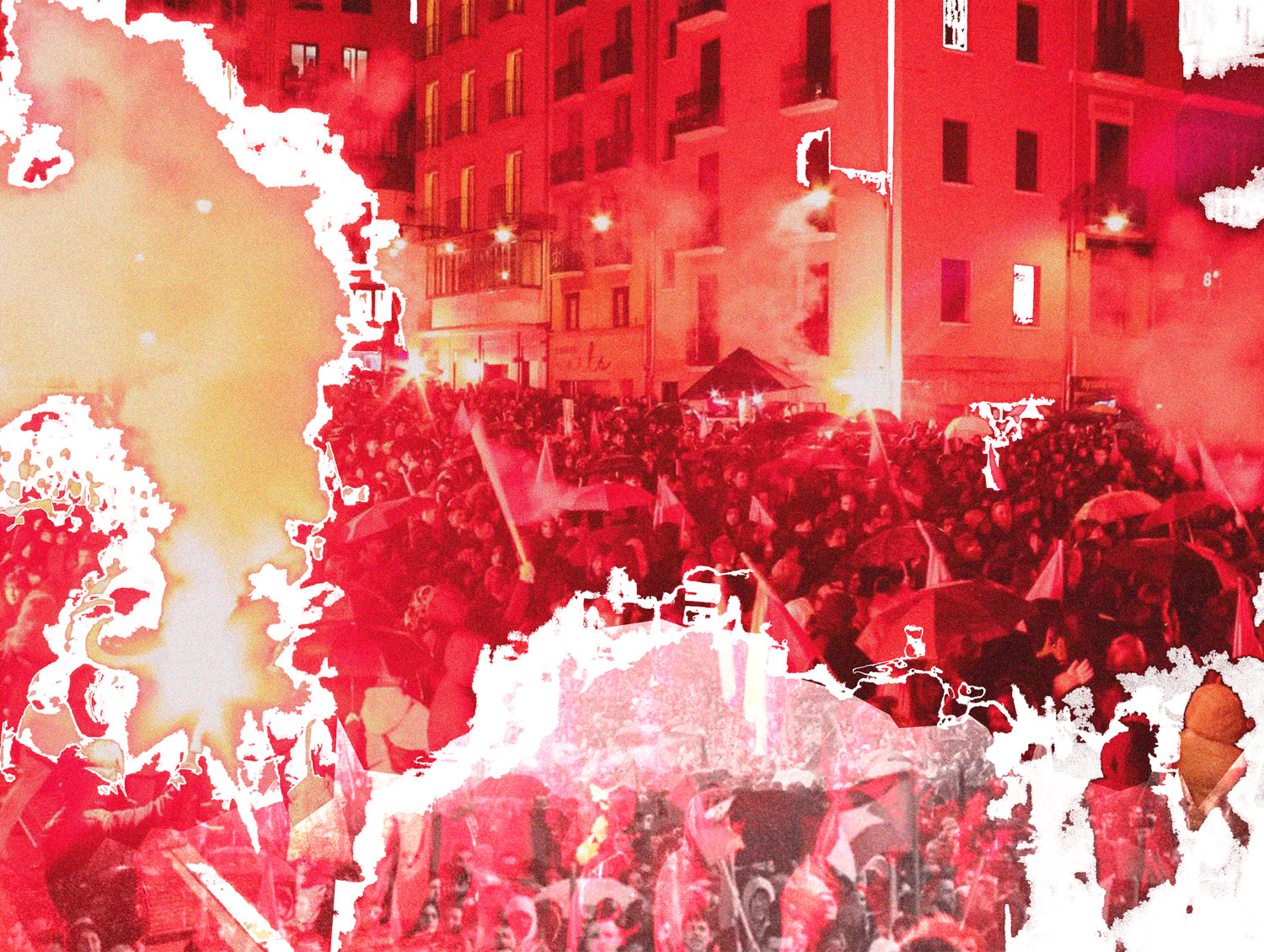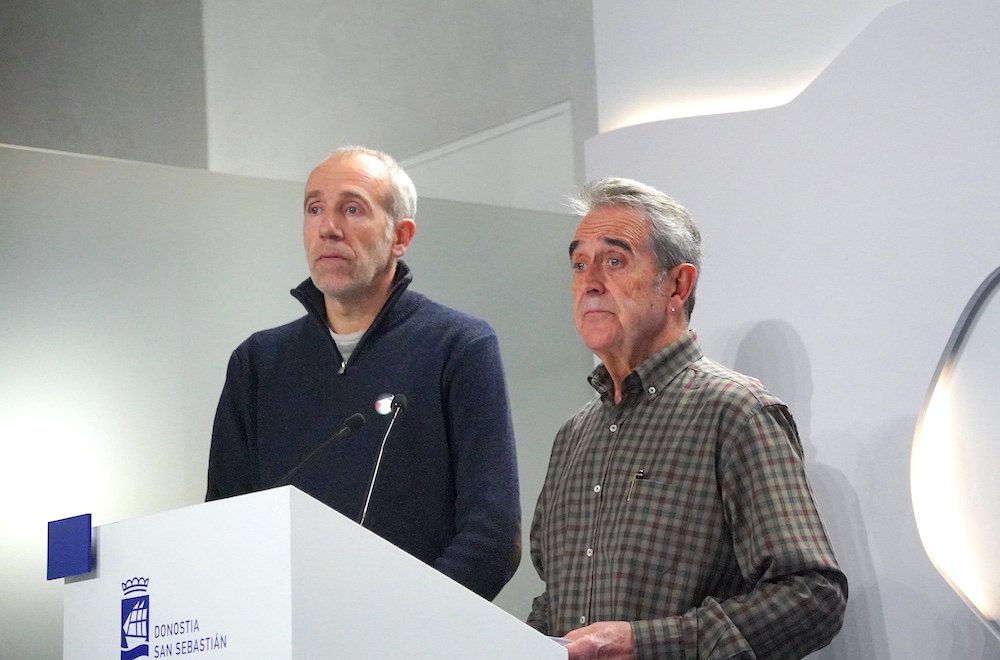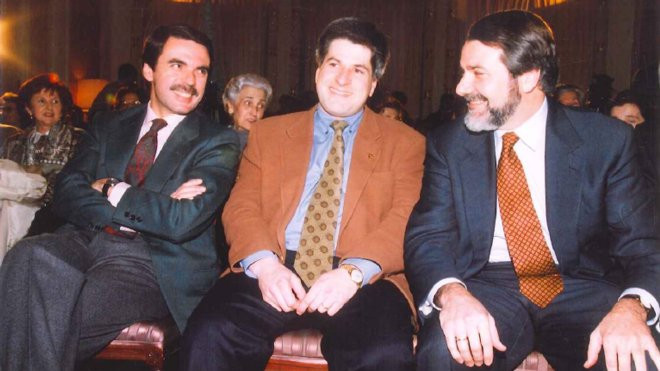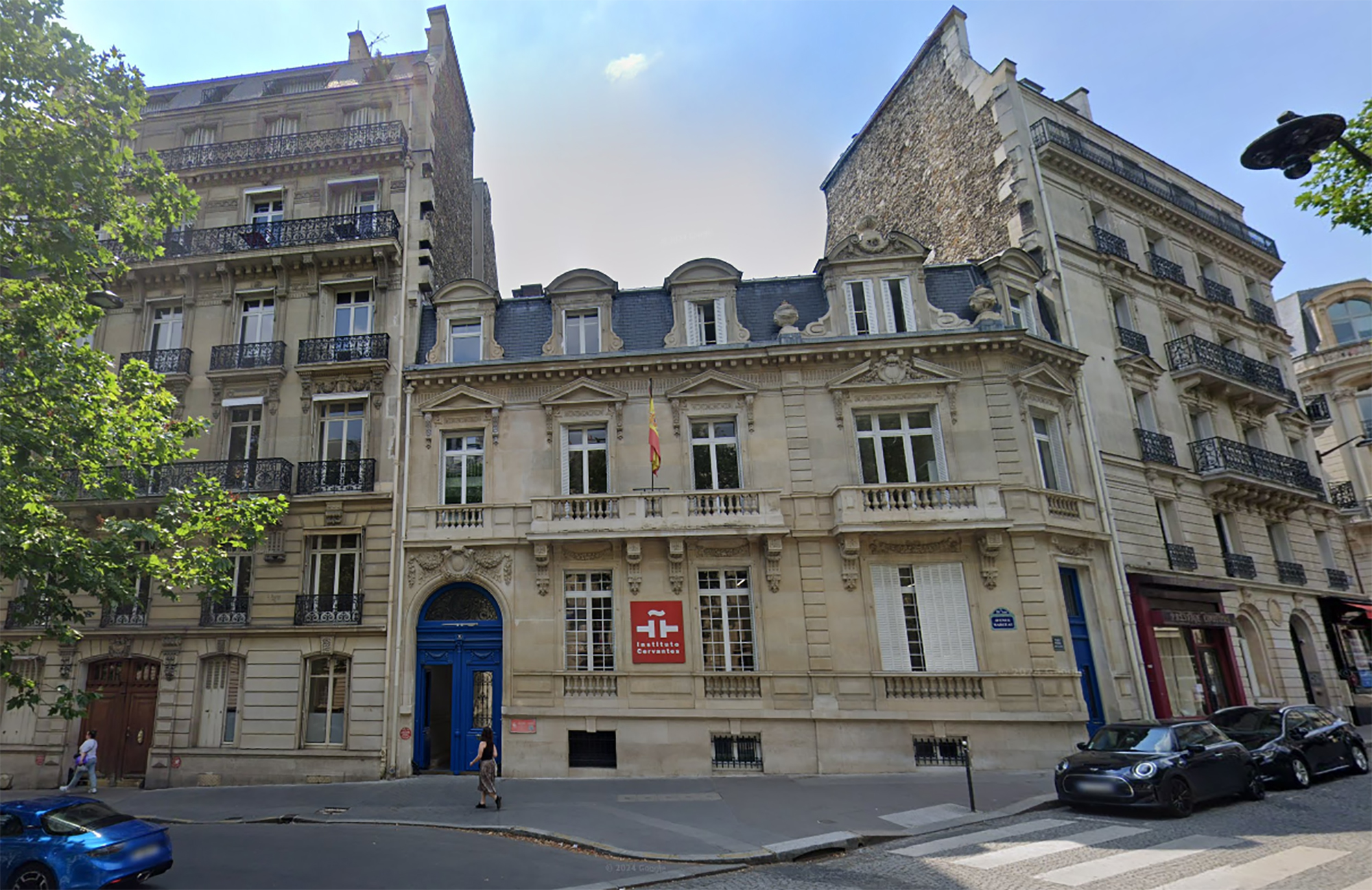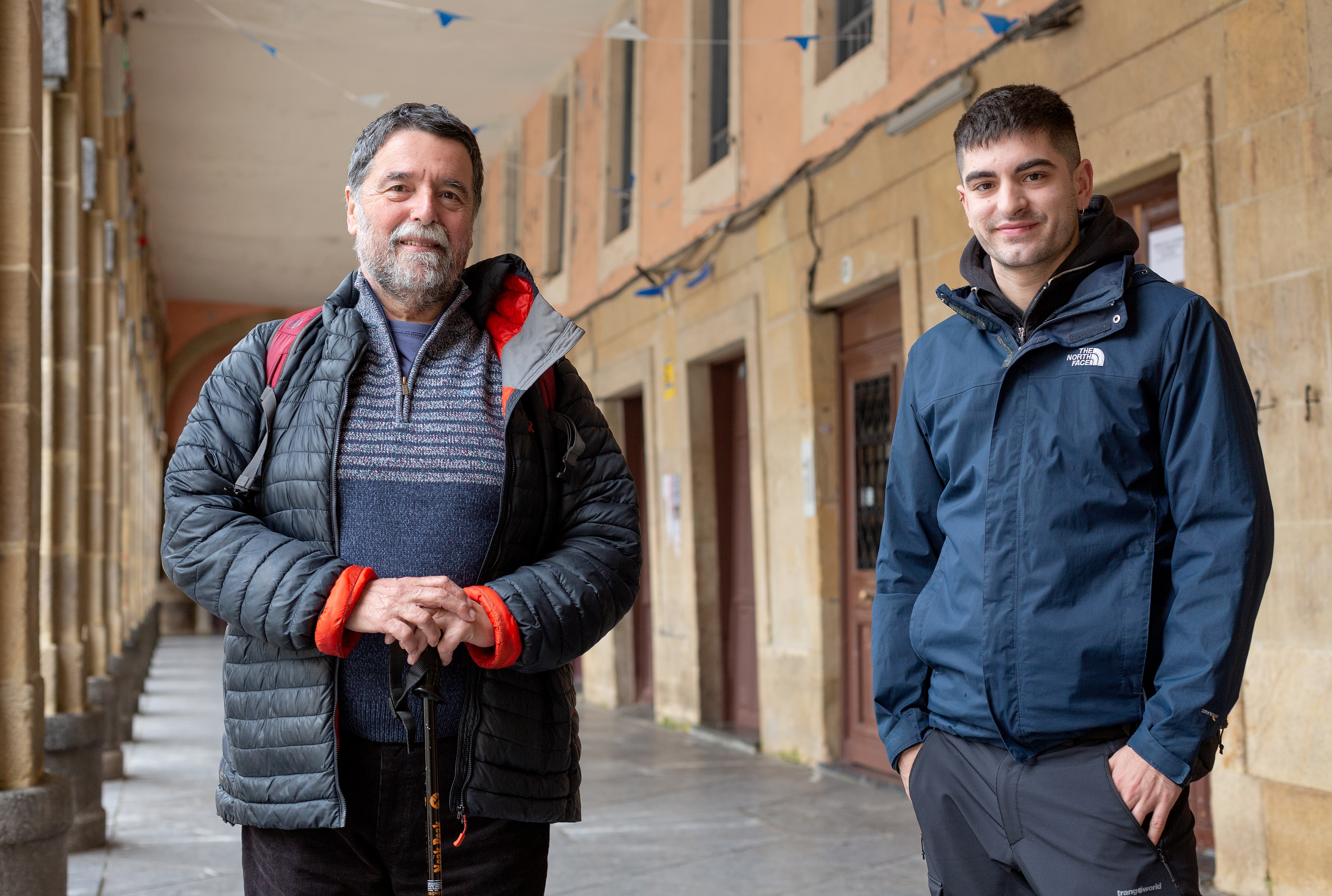"We have to work the social alternative thinking more about the person."
- Elizondo, 1977. Degree in Audiovisual Communication from the UPV/EHU of Leioa. Journalist on radio Xorroxin and television Xaloa. He has worked in Gaur 8 and in Navarra. He's a member of the Sortu. Mayor of Baztan from EH Bildu: “I have experienced the social struggles, the input, the issue of the Itoiz swamp and the defense of the land. I have known its importance in the system of values, its revolutionary anti-capitalist and alternative character, as well as the political conflict. I have grown up in the context of special historical repression. I’ve come to the post of mayor from Herrigintza,” he told us in the beginning of a long conversation.
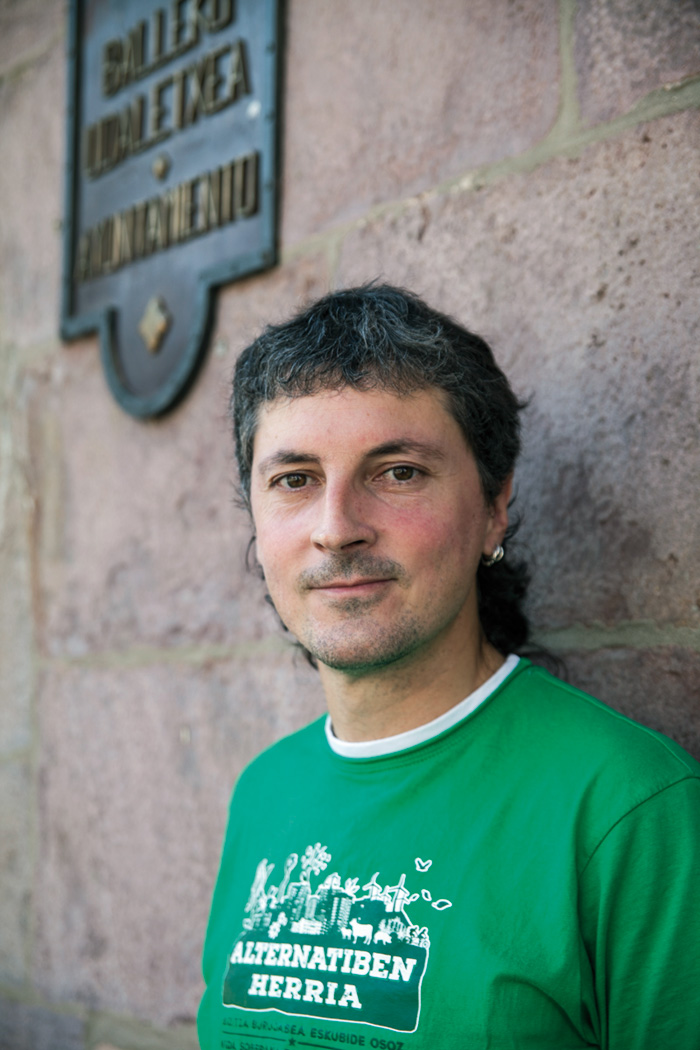
In June you served as mayor of Baztan. Give us an assessment of the mandate we have been doing so far.
For me it has been very enriching. At the political level, EH Bildu came to the City Hall with a political program to defend the citizens, as they want. We are elected officials of the people and we are debtors of our everyday environment. We work our relations with everyone, they have been agreements and disagreements. In June of last year I took office and in August I was rejected mayor for the subject of Aroztegia [planned urban complex in Lekaroz]. This year’s budgets, for the first time in Baztan, were not approved in the first round, yes in the second.
By subordinating Geroa Bai to the Aroztegia project, he has positioned himself aggressively against the Baztan City Hall, joining UPN and Auzolan, hindering Baztan’s institutional activity. However, we have been able to make strategic progress, since the ideas that articulate Baztan, his collective aspiration and his values, correspond to the progressive and Euskaldun program that we represent.
In the Aroztegia project you are molding with Geroa Bai.
Yes. To begin with, Geroa Bai argues his favorable position because the project has already come from before. However, the Departments of Spatial Planning, Administration and the Environment of the Government of Navarra had the opportunity to paralyse the Carpinteria. On the electoral front, UPN’s active government approved the PSIS (Efficient Municipal Sector Plan), declaring it to be of foreign interest. In July last year, the General Board of the Baztan urged the Government of Navarra to review the issue and to reconsider its decision before going to court. The Government had the opportunity to paralyse the PSIS with this question. The report prepared by the Government is inadequate. Obviously, he had taken the PSIS and the decision to proceed with the project. In 2008 the sponsoring company already tried to boost the PSIS. The technicians at the time told the Government that a structural modification of Baztan ' s municipal plan was sufficient to address the plan. GEROA Bai says that they came from before, indeed, but that they had to stop the government. You have to accept that.
What is the current process?
The General Assembly has opened an administrative litigation before the Navarra Hearing, which is pending resolution. On the other hand, the Subai platform has opened another case against the PSIS and the government with the group “What after the carpentry?”. In the meantime, the PSIS has been approved and it has been limited to saying that the promoter wants to start work before the end of the year. In May, some 1,500 people demonstrated in the streets of Elizondo against the project. In June a popular consultation was held in Baztan
“Because of its dependence on the Aroztegia project, Geroa Bai has adopted an aggressive attitude against the Baztan City Hall”
on the socio-economic model, the citizens who participated voted against. In Lekaroz in 2008 the consultation was carried out, and the lekaroztarras were opposed, also the Local Assembly of Lekaroz. The parties had just passed and the atmosphere was tense. People are not willing to despair.
In this sense, the so-called government of change, formed in solitude, is not a coalition government, but rather, instead of being a pioneer, breaks with the past and deepens democracy to overcome conflicts, has been committed to it. It functions as an old regime, instead of questioning the citizens, it has adhered to the PSIS. Why? I would like to know.
I confirm the question. Why?
There are hidden interests that are linked to some leaders of Geroa Bai. I'm not talking about bribery, I'm talking about treatment and knowledge. I am referring to those who have criteria, those who affect in the places where things are decided, those who decide when they take the position.
In Navarre there was a change of government. How has that affected Baztan?
Beyond some symbolic gestures about Baztan, I did not perceive many cambios.Por of course, for example, they call the government and receive you in Basque, there is another hospitality in linguistic terms. Moreover, there are few changes. I understand that Geroa Bai achieved a government in a poor economic situation, which requires adjustments, which are reflected in government action, in real and material practices. I also understand that his succession became poisonous and that the first impulse was conditioned by it. If hidden prizes suck around EUR 60 million a year, there are problems and disabilities for change to take place. But the truth is that change has brought us very little. For example, Manu Ayerdi [First Vice-President of the Government and Economic Development Advisor] refers to research, innovation and development. If we talk about Baztan, my question is: What is soil recalification? It's a pretty old term to be innovation. Our vision may not be the most direct, because we are conditioned by the question of Carpentry, but I think there is a lack of will for change.
You mentioned the political programme of EH Bildu. What is the political model that you want to develop at Baztan?
In 2015, EH Bildu established northern Baztan for 10-15 years. The programme shows the need and desire to develop different challenges from the point of view of the local economy. The economic structure of a rural area is scarce, 48% of the people who work in Baztan are affiliated with the Social Security as autonomous. In industrial areas, in cities, the percentage is 14%. Therefore, in the villages of Baztan we have to change our gaze towards employment. The easiest thing is to interpret our region from the media and academies and try to influence our place: its main view is citizenship and industry. On the contrary, the situation requires permanent readaptation. The economy of Baztan has to be built by the collective actors, which is very dispersed. With the creation of these collective economic actors, we would like to see a structure that has unified them by 2017. For example, at first we created the Baztango zaporeak initiative with local transformers, boosting small-field production. We have gained leadership and credibility in the first year.
On the other hand, it is a socio-cultural pillar in accordance with this: the concept of educating people began to work in all of Euskal Herria, also in Baztan. We have baptized this concept from Kerizu Bera and are developing several projects in that direction.
You said: “We can bet on sustainability or continue with an exhausted economic model.” What does Baztan's model consist of, looking at it in depth?
We are 7,848 people, the unemployment rate is around 10%. Many use themselves as self-employed. Like everywhere else, we are experiencing an ecological social crisis and we don't know where it's going. Within this confused context, our society and community is small, that is the model's identity mark. We have the capabilities we have, local development is interesting, but we need local structures and profound reforms, solid structural changes.
Baztan farmers account for 7% of the total population. It is not a rural area, it is a rural area. What is the rural environment? Nobody defines what it is. There is talk of rural development policy. What is it? Nobody is able to explain it. We need serious studies of rural policy in order to faithfully secure the objectives. What happens when a rural non-agricultural area is left? Many difficulties. Who will manage soil and the environment? Baztan is the largest municipal territory in the Basque Country. The landscape is managed by 7%, an activity rate that is already marginal. 10% are construction companies or workers. Most cases occur outside the Baztan Valley. 22% of the industry, many of them in Cinco Villas and in the region of Pamplona. The services sector, on the other hand, is located at 65-67%: care of the elderly, shops, public employees and tourism. Today, tourism is exalted. But what is tourism? At Baztan we have received 10,000 visitors this year. More and more come, but it's a seasonal, precarious job, and that's where a lot of people live. In addition, some of these tourists buy a home, do not use it for rent, and create serious problems in the area of housing.
The Alternatiben Herria initiative is the way to change the system. You support that. Can it be applied to Baztan?
It's hard to tell. To begin with, the social, political and economic alternative of society must be worked with more thought about the person, the raw material is the people, we must start with our needs. But how are we going to make viable if the imaginary of rural youths is colonized by the city. In Baztan, the dialectic between the city and the people that took place in the twentieth century has been intensified again, and we have to renew that debate. That is to say, with reference to the European Erasmus programme, the slogan “learning to live here outside” is the one sold by the powerful media. If the life model develops through the idea of consumption, if the aspiration is an idea of growing consumption, with the objective of growing socially, then we find the resources that capitalism uses to integrate people and avoid social conflicts. The limits of the ecological problem clearly appear.
Talk about sustainability. How is the concept today, from your point of view?
Well, it's often a conversation. We have to fill the word with content. I do it with all respect, if sustainability is to be a civil servant, to have a car caravan to go somewhere on the weekend, we're wrong. If we are in these parameters, that means that we are talking about our personal aspirations, that we are entering a non-collective zone.
On the contrary, is sustainability a revolutionary and economic culture? Yes, but raised in this way, for some it is not viable, it has no recognition among citizenship. In this respect, the proposal may be completely reactionary. This slogan is immediately imposed: immigrants take away the work from us. The essence of fascism is being fed up, social competition is constantly growing. Even knowing that the current model is exhausted, if we are not able to articulate a minimal discourse, what people can admit in minimums, it is difficult to change the model. The new development model must address other profound and transformative concepts.

“Landa eremuak, aldika hiritik begiratzen ditugu leku harmoniatsuak bezala, halako jatortasun eta auzo-kidetasuna ematen dena. Baina ez, landa eremuak ere leku gatazkatsuak dira, jendarteko harremanen isla. Noski, gatazka horiek beste terminoetan ematen dira. Gurean hor dira adibideak: Erdiz harrobia, Aroztegia proiektua, Gaztetxea, merkataritza-guneak. Hemen ere grebak izan dira krisi ekonomikoa dela eta. Bertzetik, herri dantzak direla eta, emazteak parte hartzea edo parekidetasunaren aldeko borroka dago.
Baztan anitza da. UPNren izatea lekuko. Batetik identitate kulturalak daude eta bestetik politikoak. Baina dikotomia hori aspaldion argitu da, zorionez. Aldika gertatzen da bien arteko koherentzia eta harreman zuzena, eta bestetan, diskordantzia. Nafarroako mendialdean UPNren aldeko bozak daude, bistan da. Familia euskaldunenak dira, gaur egun gehienak Elizondon daude, ez hainbertze baserri eta herrixketan, hala izanik ere, horietan ere bozak jasotzen ditu. Horietan baina, herritarrek beren identitate kulturaletik politikorako jauzia eman dute. EH Bilduren bozak homogeneoak dira, Elizondon eta baserrietan. UPNren kasua ez da horrenbeste horrelakoa, UPN ari da ezaugarritze berri bat hartzen, elizondoarra da batez ere”.
I received your e-mail in personal mail on the strike portals. At first, like many others, I thought it was to let you know what options we have in the face of the strike. But no, the e-mail received was a political and communicative movement against the strike.
I will confess... [+]
“It happened once and since then it happens every day [...] let’s not see what happens here. Such is the world, and no one today is a prophet in his dominion.”
I’ve been told about something else since time and time, I can’t see anything else and nothing I would... [+]











.jpg)
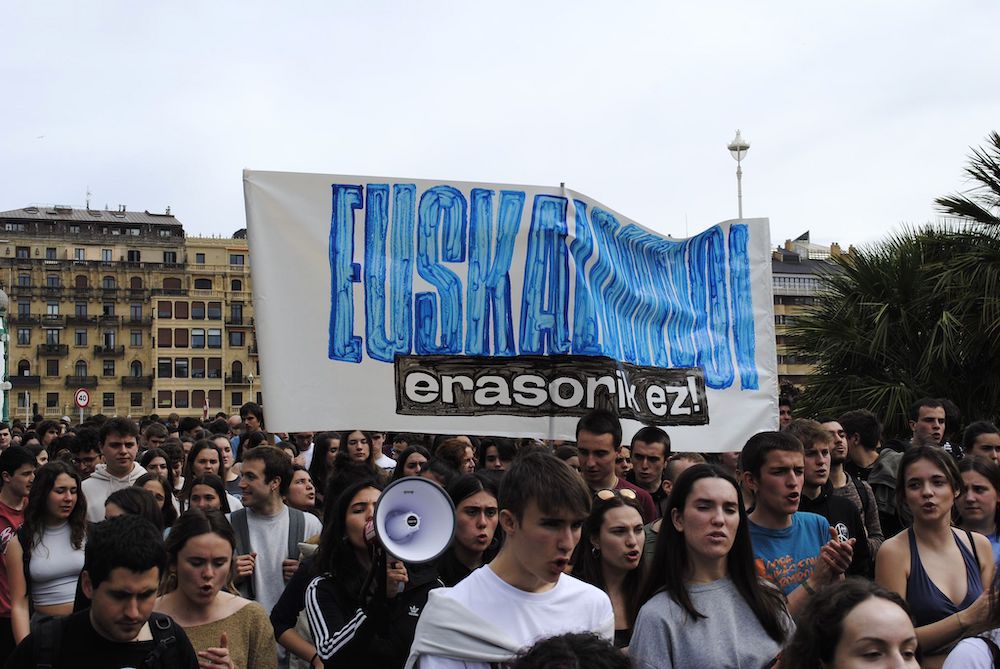
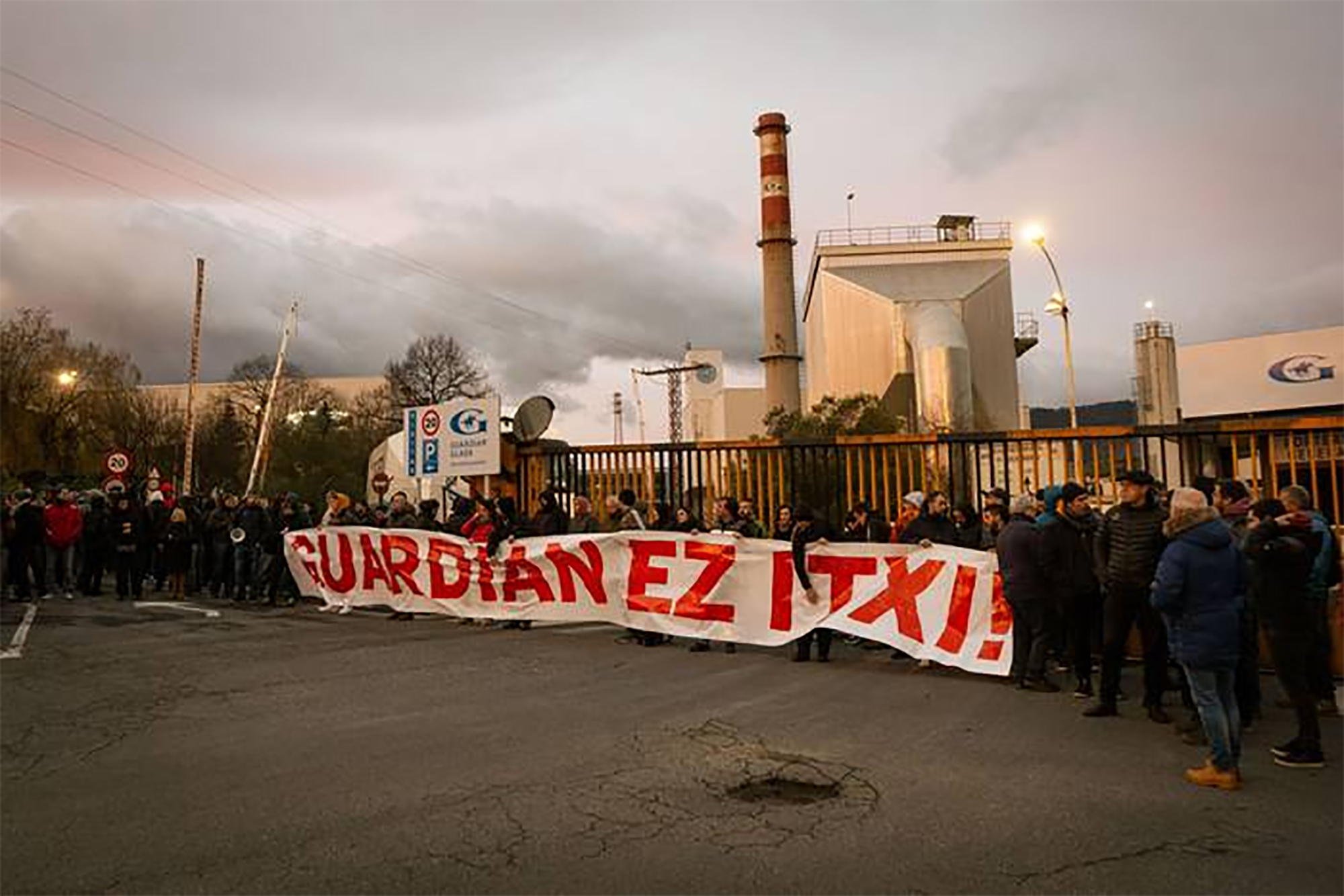
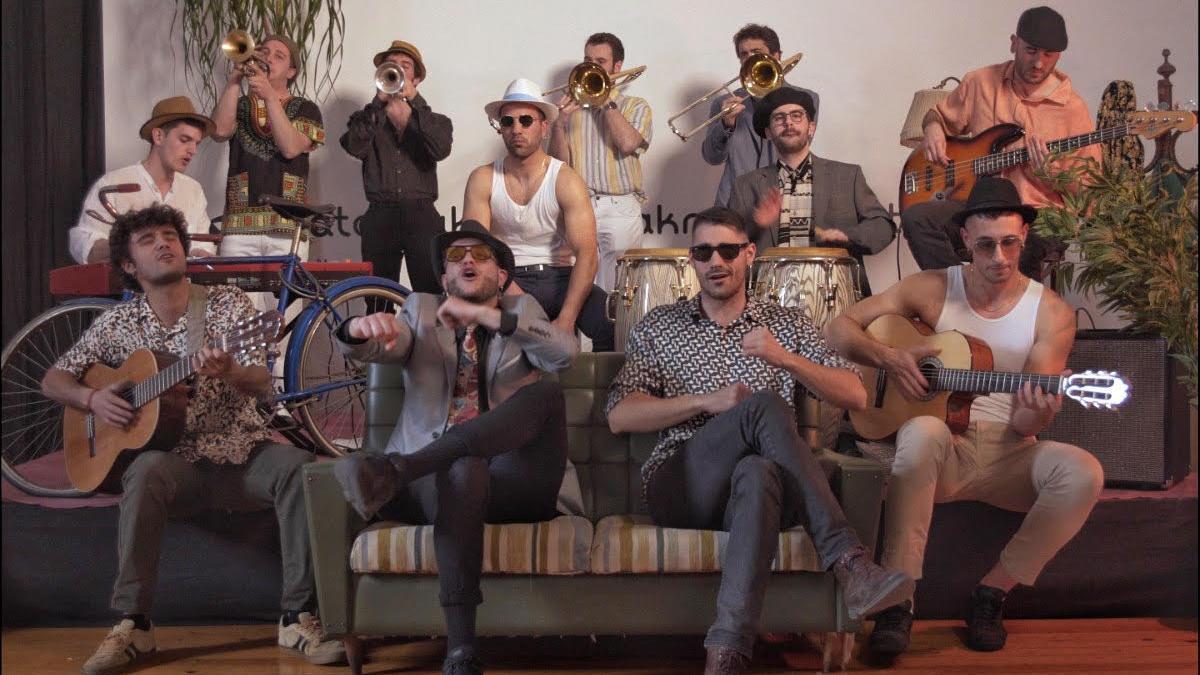



.png)

